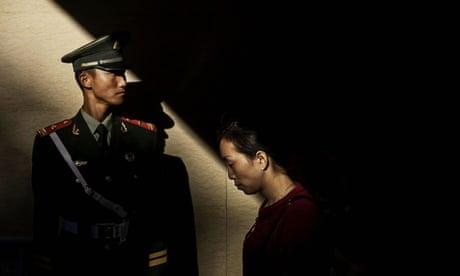The bill requires yearly review of US trade and business policy towards Hong Kong.
AL JAZEERA NEWS
 Young Hong Kong pro-democracy activists have been lobbying in the US to exert more pressure on China, warning that an erosion of the city''s special status would embolden Beijing to crack down on dissent.
Young Hong Kong pro-democracy activists have been lobbying in the US to exert more pressure on China, warning that an erosion of the city''s special status would embolden Beijing to crack down on dissent.The United States Congress has moved closer to passing legislation that would require an annual review of its trade and business policy towards Hong Kong, giving a boost to the city's pro-democracy movement.
Members of the US House of Representatives' committee on foreign affairs unanimously approved the Hong Kong Human Rights Acts on Wednesday, and its Senate version cleared the committee level shortly after.
"To the Chinese Communist Party and those seeking to undermine Hong Kong's freedom and autonomy, let me be crystally clear -- the House Foreign Affairs Committee will not sit idly by," Eliot Engel, the Democratic chairman of the committee said ahead of the vote.
He said the bill demonstrates US "support for the Hong Kong people at this critical time."
At the Senate, Jim Risch, a Republican senator from Idaho and chairman of the foreign relations committee, also welcomed the bipartisan vote.
"After more than two decades of broken promises, it is time that we hold the Chinese Communist Party accountable for its erosion of Hong Kong's autonomy," he said.
With the committee approvals done, the bill heads for a vote in both chambers of the US Congress.
The House and Senate versions of the legislation need to be identical before a final vote can commence.
Senator Marco Rubio, the author of the Senate version, urged the quick passage of the bill and approval by US President Donald Trump.
He said China should be held "fully accountable for its ongoing efforts to undermine Hong Kong's freedoms and autonomy."
A separate bill, known as PROTECT Hong Kong Act, which seeks to ban sales of riot-control equipment to Hong Kong law enforcers, is also pending in the US Congress.
He said China should be held "fully accountable for its ongoing efforts to undermine Hong Kong's freedoms and autonomy."
A separate bill, known as PROTECT Hong Kong Act, which seeks to ban sales of riot-control equipment to Hong Kong law enforcers, is also pending in the US Congress.
I am proud @SenateForeign today passed the #HongKongHumanRightsandDemocracyAct. After more than 2 decades of broken promises it's time we hold the CCP accountable for erosion of Hong Kong autonomy. We are all proud to stand with Hong Kongers in pursuit of fundamental freedoms.— Jim Risch (@SenatorRisch) September 26, 2019
On Tuesday, President Trump told the UN General Assembly in New York that Beijing must protect the former British territory's democratic way of life.

A separate bill, known as PROTECT Hong Kong Act, which seeks to ban sales of riot control equipment to Hong Kong law enforcers, is also pending in the US Congress.
Hong Kong activists, including Joshua Wong, have been lobbying for the passage of the legislation, appearing before committee hearings in Washington, DC.
Last week, Wong told American legislators that Beijing "should not have it both ways, reaping all the economic benefits of Hong Kong's standing in the world, while eradicating our sociopolitical identity."
Hong Kong, an autonomous Chinese city and former British colony, has been rocked by protests for months, following the city's decision to introduce an extradition bill, which would have allowed its citizens to be prosecuted in mainland China.
Hong Kong Chief Executive Carrie Lam was eventually forced to withdraw the bill, but protests continued with demonstrators denouncing what they said was Beijing's interference of Hong Kong affairs.
On Thursday, Lam will hold her first talks with members of the public in a bid to resolve a political crisis that has fuelled nearly four months of protests and plunged the city into chaos.


